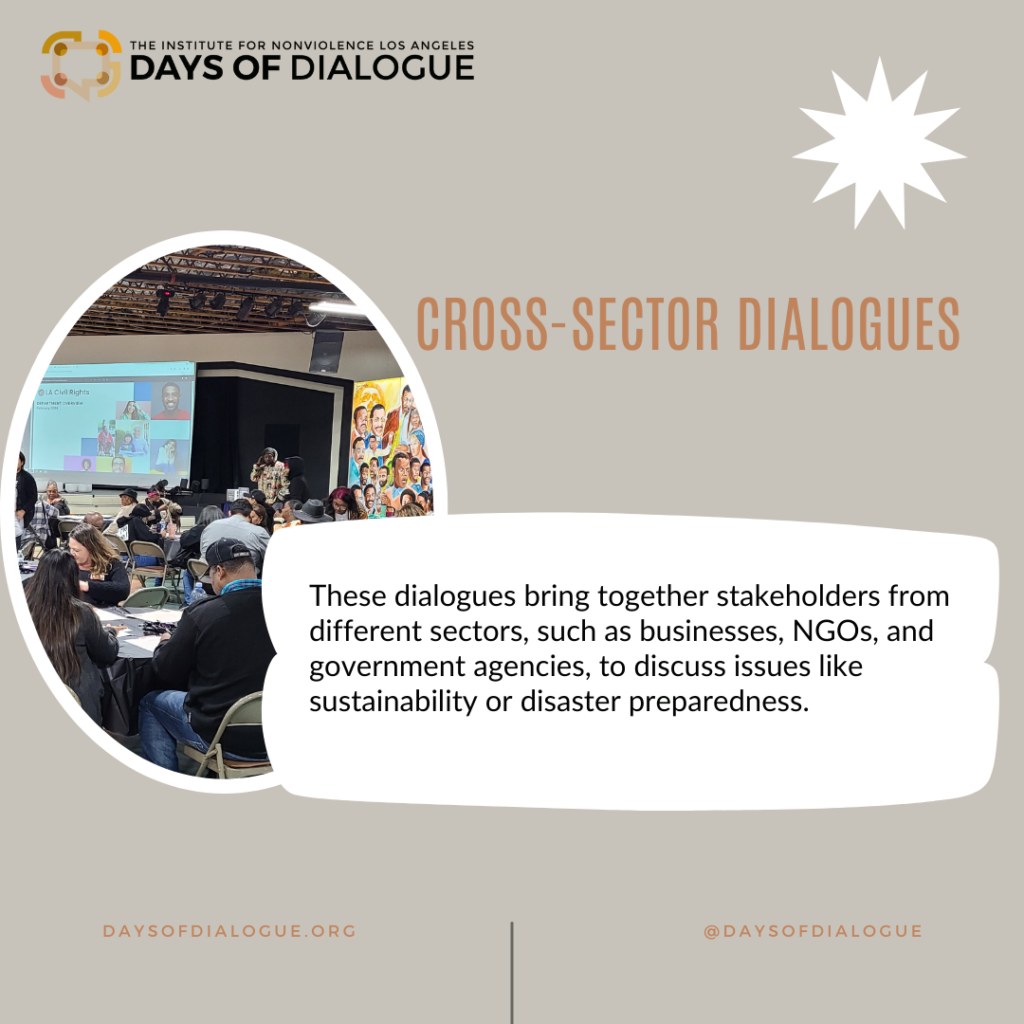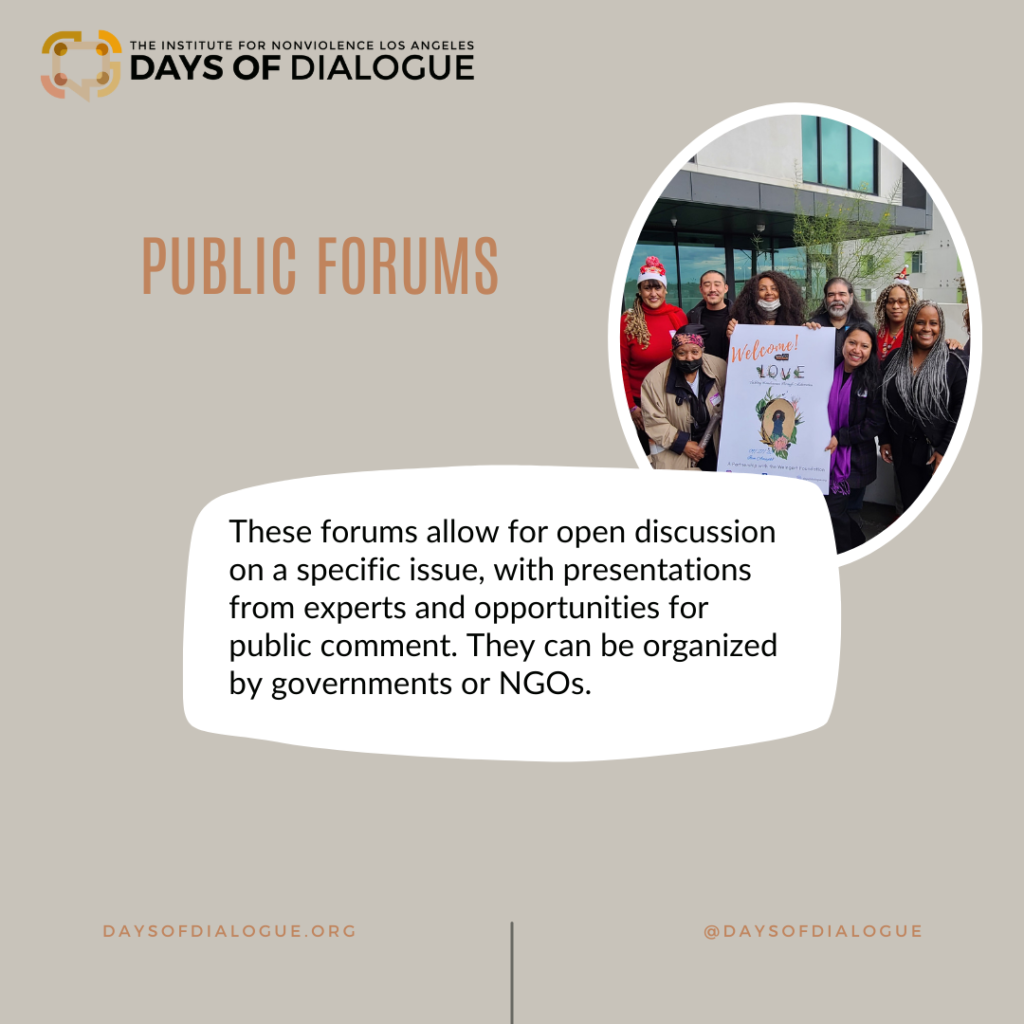Types Of Dialogues
Types Of Dialogues
Community Groups
- Neighborhood associations: Resolving disputes, planning community events, and addressing shared concerns.
- Religious congregations: Fostering understanding among diverse members, addressing ethical dilemmas, and strengthening community bonds.
- Civic organizations: Engaging with local government, advocating for policy changes, and promoting community well-being.
Educational Institutions
- Schools and universities: Improving student engagement, addressing diversity issues, and fostering a positive learning environment.
- Faculty and staff: Resolving conflicts, enhancing collaboration, and promoting professional development.
- Students: Developing critical thinking, problem-solving skills, and intercultural competence.
Workplace Settings
- Teams: Improving communication, building trust, and increasing productivity.
- Leadership: Developing effective leadership skills, fostering employee engagement, and addressing organizational challenges.
- Human resources: Resolving conflicts, promoting diversity and inclusion, and enhancing employee well-being.
Government and Policy Making
- Legislators: Building consensus, addressing complex issues, and developing effective policies.
- Government agencies: Improving communication with stakeholders, addressing public concerns, and promoting transparency.
- Policymakers: Engaging with diverse perspectives, developing innovative solutions, and promoting evidence-based decision-making.
Healthcare Settings
- Healthcare teams: Improving communication, reducing medical errors, and enhancing patient care.
- Patients and providers: Building trust, addressing health concerns, and promoting shared decision-making.
- Healthcare administrators: Resolving conflicts, improving organizational culture, and promoting quality improvement.









